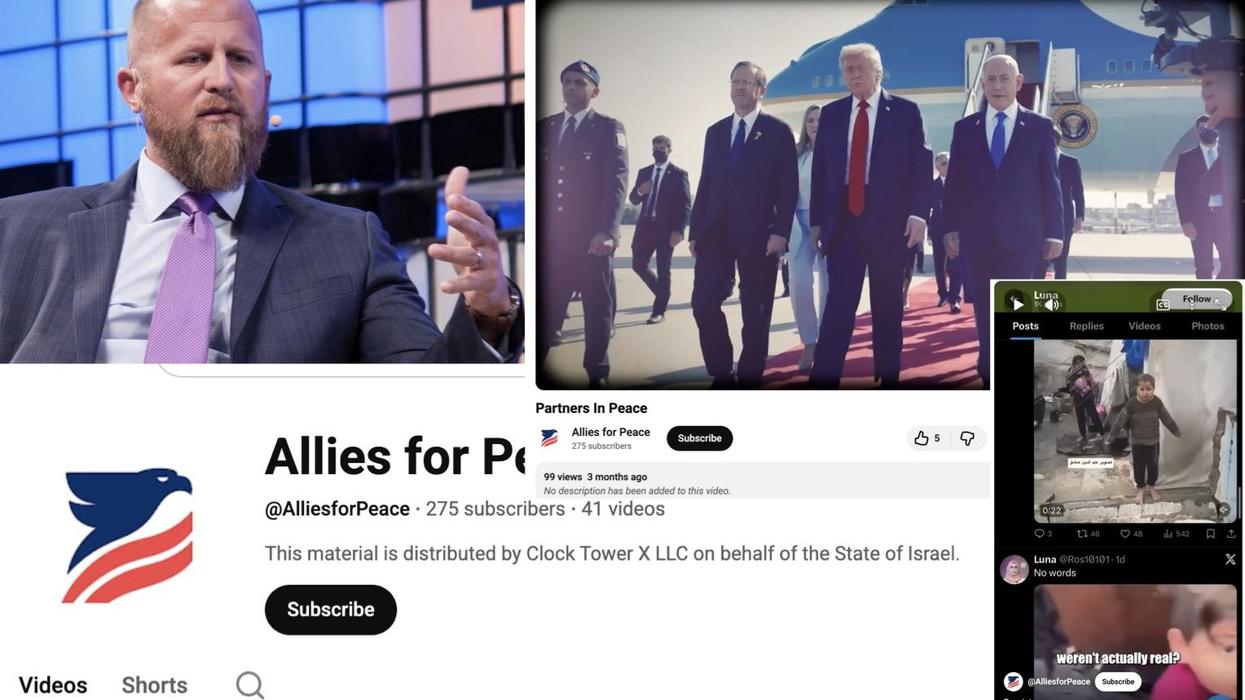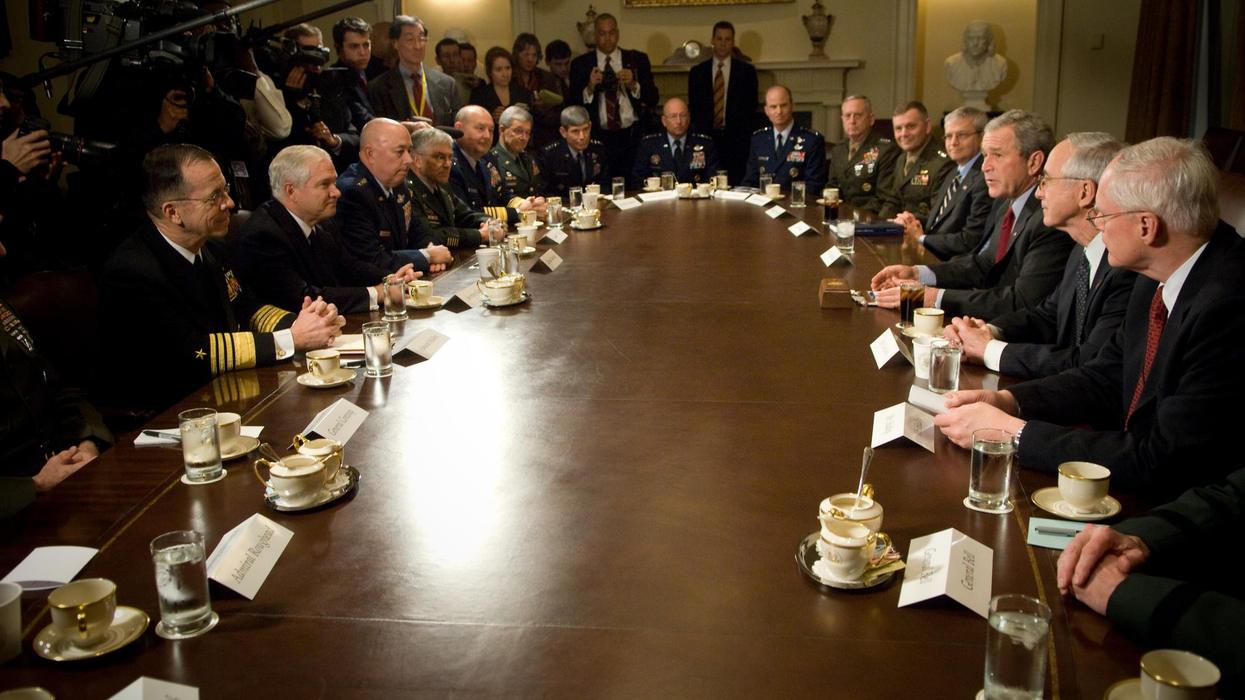One striking feature of U.S. foreign policy in both Republican and Democratic administrations over the decades is how often policymakers seem oblivious to the reality that other countries might legitimately see some U.S. initiatives as menacing.
Instead, the implicit assumption is that Washington’s policies are always noble and well-meaning, intended to benefit both the United States and the world as a whole. A corollary assumption is that these virtues are so self-evident that no foreign government can in good conscience hold a different view. If a regime dares object to, criticize, or try to undermine one of those policies, such behavior is considered definitive evidence of evil intent. The mainstream news media in the United States generally reflect the same attitude, as do most operatives in the think tank community.
An utter inability to see Washington’s positions and conduct from the vantage point of other parties is a pervasive and frequently fatal flaw in America’s dealings with the rest of the world, especially countries that U.S. leaders consider adversaries. It definitely has characterized the excessively rigid policies toward both North Korea and Iran. But the defect has been most evident in Washington’s policies toward China and Russia. U.S. leaders seemingly expect the People’s Republic of China (PRC) to tamely accept the emergence of a blatant, hostile U.S. containment policy. Washington’s ham-handed management of relations with Russia since the fall of the Soviet Union is even worse. It has produced a needless new cold war with Moscow, and the egregious bungling has now culminated in the current crisis regarding Ukraine.
The United States is adopting policies that ignore fundamental PRC concerns. From China’s standpoint, the steady growth of U.S. political and military support for Taiwan is extremely provocative. PRC officials never tire of pointing out that beginning with Richard Nixon’s 1972 trip and the signing of the Shanghai Communique, the United States has committed itself to a “one-China” policy. The severing of U.S. diplomatic relations with Taipei and the official recognition of the PRC at the beginning of 1979 seemed to confirm that policy. In the August 17, 1982, joint communique following Ronald Reagan’s meeting with PRC premier Zhao Ziyang, the United States even agreed to eventually end arms sales to Taiwan, a move that indicated that Washington would ultimately accept the island’s reunification with the mainland.
Instead, Chinese policymakers complain, the United States reneged on its commitment regarding arms sales. Not only have those transactions continued, recent U.S. administrations have adopted a very flexible definition of what constitutes “defensive” weapons. Worse, under President Donald Trump, previous limitations on U.S. political, diplomatic, and military support for Taiwan eroded dramatically. High-level U.S. national security officials began to meet with their Taiwanese counterparts—something that had not occurred since 1979. The level of U.S. verbal and material support for Taiwan is now at levels not seen since the shift of relations to Beijing. Much of the substance of the old Cold War-era mutual defense treaty between Washington and Taipei that officially ended in 1979 also has been restored. U.S. military planes and warships now operate in the vicinity of Taiwan with ever greater prominence and frequency.
To the Chinese, those developments reflect both duplicity and aggressive intent on Washington’s part. Taiwan’s political status is a high-priority issue for Beijing; PRC leaders have never accepted Taiwan’s de facto independence, and insist that they never will. They now suspect that the United States is facilitating the goal of Taiwan’s permanent separation from the mainland, and they view that behavior as extremely unfriendly. From China’s point of view, Taiwan was forcibly wrenched from the rest of the nation by Japan during China’s “century of humiliation,” and the United States prevented reunification following the communist victory in the country’s civil war by placing its naval forces between the mainland and Taiwan. The newest manifestations of U.S. support for the separatist government on the island are viewed as evidence of an unwillingness to accommodate China regarding its most sensitive issue. Beijing’s warnings to Washington are becoming increasingly blunt.
China’s anger at the United States now goes beyond the Taiwan issue, however. PRC officials notice Washington’s attempt to convert the Quadrilateral Security Dialogue (comprising the United States, Japan, India, and Australia) into a military alliance implicitly directed against China. They notice the Biden administration’s successful effort to press Japan to make the Taiwan issue a serious matter for Tokyo’s security policy. And they protest both the emergence of a substantial U.S. naval presence in the South China Sea and Washington’s apparent willingness to side with any other country in the region that disputes Beijing’s territorial claims. U.S. leaders routinely shrug off such complaints.
Washington’s strategy for dealing with China has been subtle and skilled, however, compared to its crudely belligerent behavior toward Russia. Evidence indicates that during the negotiations to get Moscow’s acceptance of not only Germany’s reunification but a unified Germany in NATO, President George H. W. Bush and his advisers led their interlocutors to believe that NATO would not expand beyond the eastern border of a united Germany.
When Bill Clinton’s administration instead worked to get Poland, the Czech Republic, and Hungary admitted to the Alliance, Russian President Boris Yeltsin objected strongly. Moscow’s complaints grew louder with subsequent rounds of expansion during George W. Bush’s presidency that brought several new East European countries, including the Baltic republics, into the military pact. Russian officials also objected to the growing U.S. military presence in the new, eastern members. President Vladimir Putin expressed his objections politely but firmly in his speech to the Munich Security Conference in March 2007, but U.S. leaders brushed aside his concerns.
Instead, Bush and successors pressed on, trying to secure NATO membership for Georgia and Ukraine. The United States and key European allies also assisted demonstrators who unseated Ukraine’s elected, pro-Russia president. This time, the Russian response did not just take the form of ineffectual protests; the Kremlin annexed Ukraine’s Crimea peninsula to secure the crucial Russian naval base at Sevastopol—and to send a message to the West.
Moscow’s warnings to the United States and its allies that trying to bring Ukraine into NATO will cross a red line are now very blunt. Russian leaders will not let Ukraine become an arena for the projection of Western military power, since that development would threaten Russia’s core security interests. Once more, though, U.S. leaders appear to be tone-deaf, insisting that Kyiv has a “right” to join NATO, if it meets the Alliance’s standards for membership. With multiple arms sales, joint military exercises, and other measures, Washington already is trying to make Ukraine a NATO ally in all but name. Russia has responded by building up its forces along the Ukrainian border.
One has to wonder how U.S. officials could possibly think that expanding NATO eastward to Russia’s border and deploying ever-growing military assets in that region would not seem threatening to Russia. Yet throughout that process, American policymakers have insisted that having the most lethal military alliance in history perch on the doorstep of another major power is not intended to be a hostile act.
Are America’s political and policy elites really so incapable of understanding how their actions appear to Russia and the PRC? The only other possibility is that they do understand, but simply don’t care — even if their actions materially increase the risk of horribly destructive wars.

















